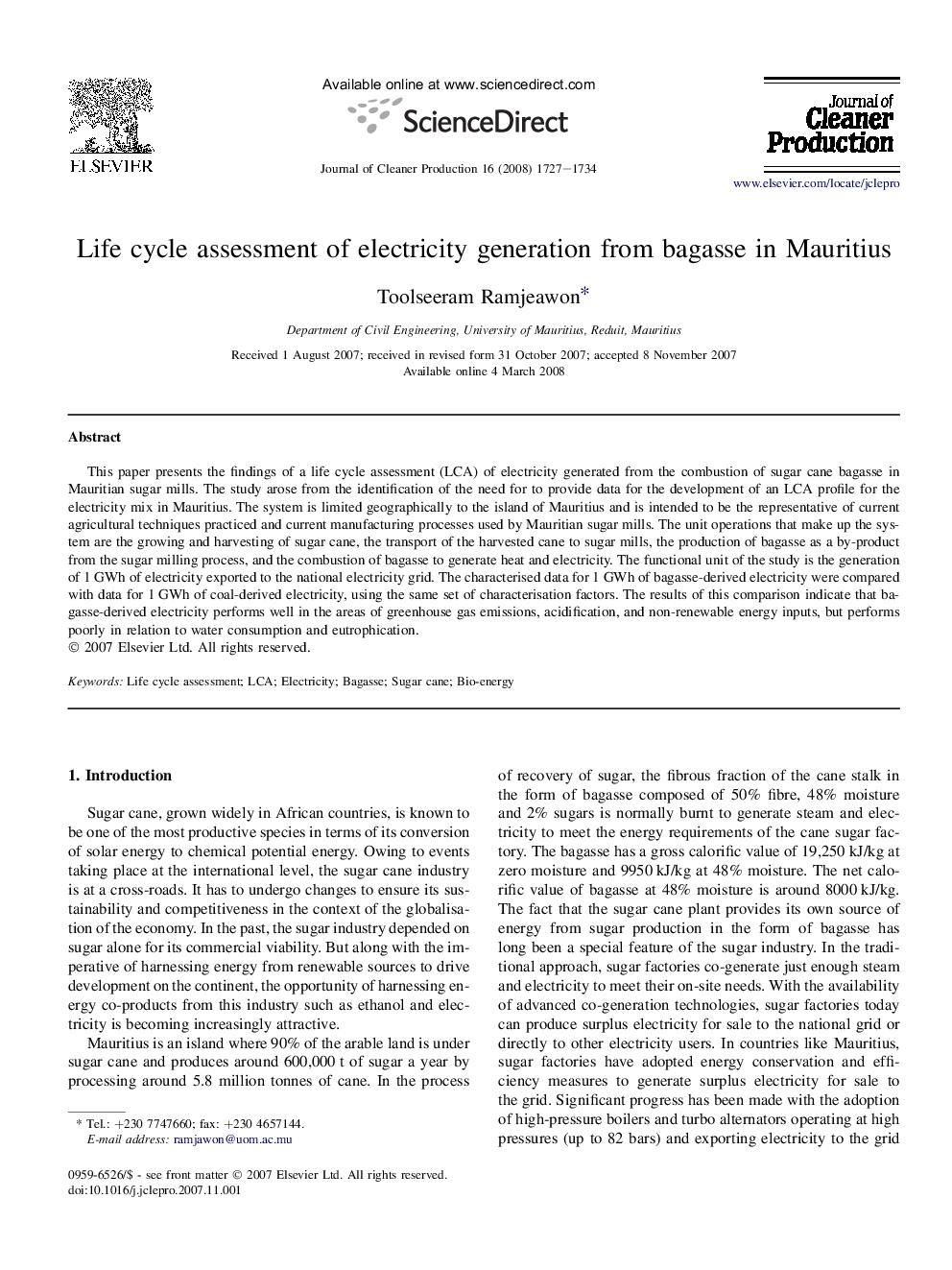| Article ID | Journal | Published Year | Pages | File Type |
|---|---|---|---|---|
| 1746708 | Journal of Cleaner Production | 2008 | 8 Pages |
This paper presents the findings of a life cycle assessment (LCA) of electricity generated from the combustion of sugar cane bagasse in Mauritian sugar mills. The study arose from the identification of the need for to provide data for the development of an LCA profile for the electricity mix in Mauritius. The system is limited geographically to the island of Mauritius and is intended to be the representative of current agricultural techniques practiced and current manufacturing processes used by Mauritian sugar mills. The unit operations that make up the system are the growing and harvesting of sugar cane, the transport of the harvested cane to sugar mills, the production of bagasse as a by-product from the sugar milling process, and the combustion of bagasse to generate heat and electricity. The functional unit of the study is the generation of 1 GWh of electricity exported to the national electricity grid. The characterised data for 1 GWh of bagasse-derived electricity were compared with data for 1 GWh of coal-derived electricity, using the same set of characterisation factors. The results of this comparison indicate that bagasse-derived electricity performs well in the areas of greenhouse gas emissions, acidification, and non-renewable energy inputs, but performs poorly in relation to water consumption and eutrophication.
